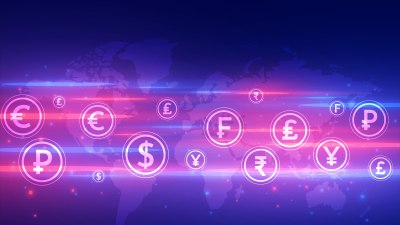You Can’t Convert This Currency to Meaning
Explore the complexities of currency and its relationship to meaning in modern society.

In today's globalized world, currency serves not only as a medium of exchange but also as a symbol of value, culture, and identity. Yet, despite its pervasiveness, one cannot simply convert currency into meaning. This article delves into the intricate relationship between currency and meaning, revealing how abstract ideas like value and identity are interwoven with the physical representation of currency.
The Nature of Currency
At its core, currency is a standardized form of money that is accepted by a community to facilitate the purchase of goods and services. Its value is generally upheld by the trust of those who use it and the stability of the government that issues it. However, this trust is often grounded in a complex interplay of cultural, historical, and psychological factors. Therefore, examining currency through the lens of meaning requires us to consider both its tangible forms and the intangible perceptions associated with it.
Economic Value vs. Emotional Value
Currency holds economic value that can be quantified in terms of purchasing power, but it also carries emotional value that can affect people's perceptions and behaviors. For example, a currency such as the US Dollar is viewed with a sense of security and reliability, while other currencies may evoke distrust or anxiety, stemming from economic instability or political turmoil. This emotional attachment to currency influences how individuals and societies define their own worth, leading to an important intersection between currency and identity.
Cultural Significance and Social Identity
Currency is deeply embedded in cultural contexts. Different societies place various meanings and values to their currencies based on historical events, economic conditions, and cultural narratives. For example, the introduction of the Euro not only streamlined currency in Europe but also represented a significant step towards European integration, symbolizing unity in the face of a chaotic past. In contrast, many nations face difficulties with currencies that are seen as remnants of colonialism or economic oppression. In such cases, currency becomes a symbol of resistance and identity, as communities strive to reclaim their narrative and redefine their worth independent of transactional value.
Virtual Currency and New Dimensions of Value
The rise of cryptocurrencies has further complicated our understanding of currency and meaning. Digital currencies like Bitcoin or Ethereum operate in an entirely virtual space, challenging conventional notions of value that rely on physical representation and government backing. These decentralized currencies thrive on community trust and the belief in their potential for future value, instigating debates about the very essence of currency and whether it can bear any meaning beyond its speculative worth.
Speculation and Perception
Currency is frequently subject to speculation, which can contribute both to its value and to its perceived meaning. The volatile nature of currencies—especially in the context of cryptocurrency—illustrates how speculation can lead to rapid fluctuations in pricing, reflecting not only economic conditions but also collective psychological shifts within markets. This interplay of speculation and perception emphasizes the idea that currency is more than just a tool for transaction; it is a living entity that fluctuates based on the moods, beliefs, and behaviors of individuals and communities.
Language and Symbolism in Currency
Interestingly, the language used around currency also plays a pivotal role in shaping the meaning of money. The terms we use—whether they are casual phrases derived from everyday life, technical economic jargon, or cultural references—infuse currency with layers of identity and implication. When people speak of “making a fortune” or “breaking the bank,” they are not just discussing monetary amounts. They are invoking feelings of ambition, success, hope, and sometimes failure. The symbolism of language acts as a bridge, connecting the currency with the multifaceted human experience and emotional terrain.
Beyond Currency: Alternative Meanings of Value
In various contexts, the idea of value transcends currency altogether. In instances of barter or trade, for example, people may exchange goods and services based on mutual agreement without the involvement of traditional currency. Such systems challenge established notions of how value is defined and exchanged, urging us to reconsider the meaning of wealth. Additionally, social currencies such as trust, relationships, and networks also play an essential role in determining value beyond monetary terms.
The Elusive Nature of Meaning
While currency is often viewed as a straightforward method for facilitating trade, its relationship with meaning is anything but simple. From the emotional and cultural implications to the challenges presented by digital currencies, the layers of meaning embedded in currency are numerous and complex. In our quest to decipher and understand these relationships, it is grasped that currency cannot be easily converted to meaning; rather, it is inextricably linked to the myriad ways we define ourselves, our communities, and our world.
As we navigate an ever-evolving economic landscape, it becomes increasingly vital to recognize that the true essence of currency lies not merely in its function as a financial tool but in the expansive meanings it embodies - a reflection of our values, aspirations, and identities. Ultimately, currency is, perhaps paradoxically, a profound testament to the human experience itself.











